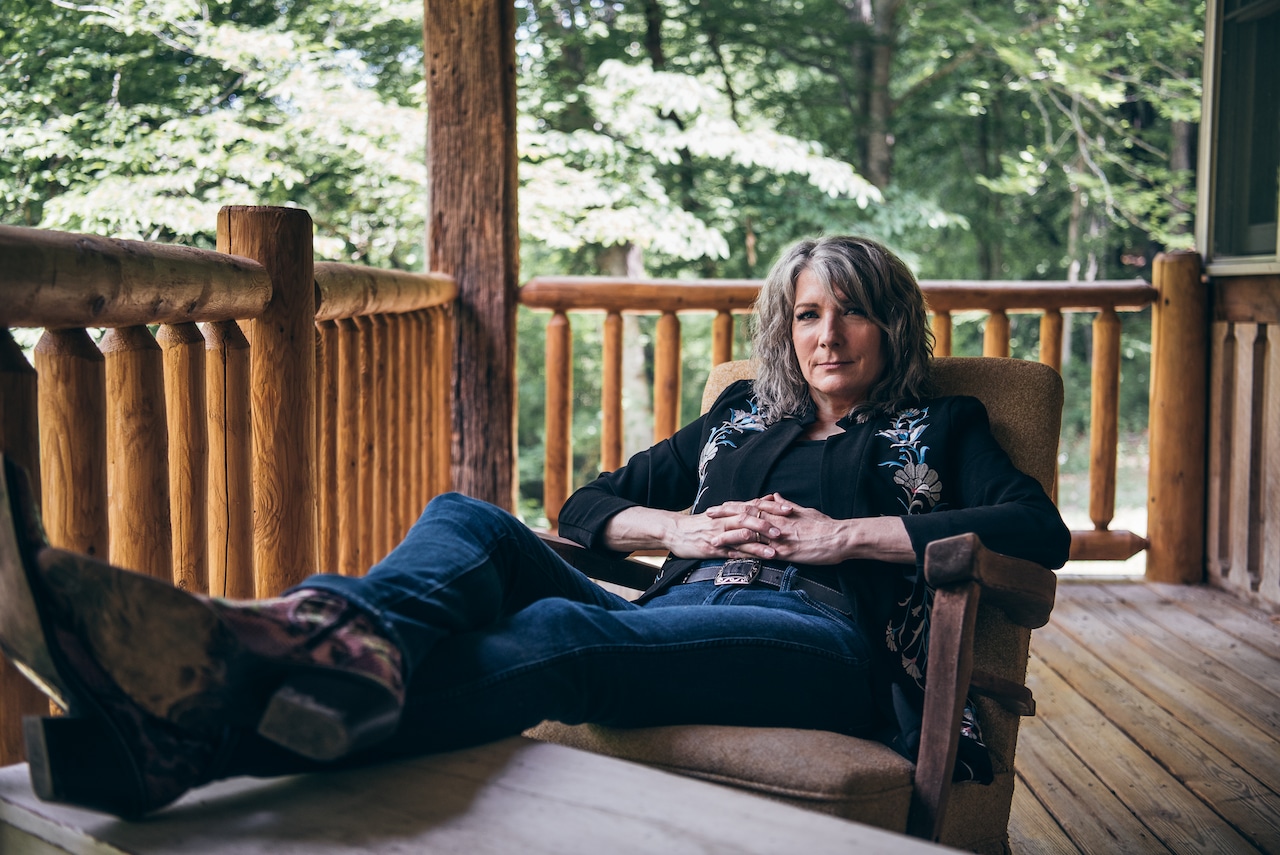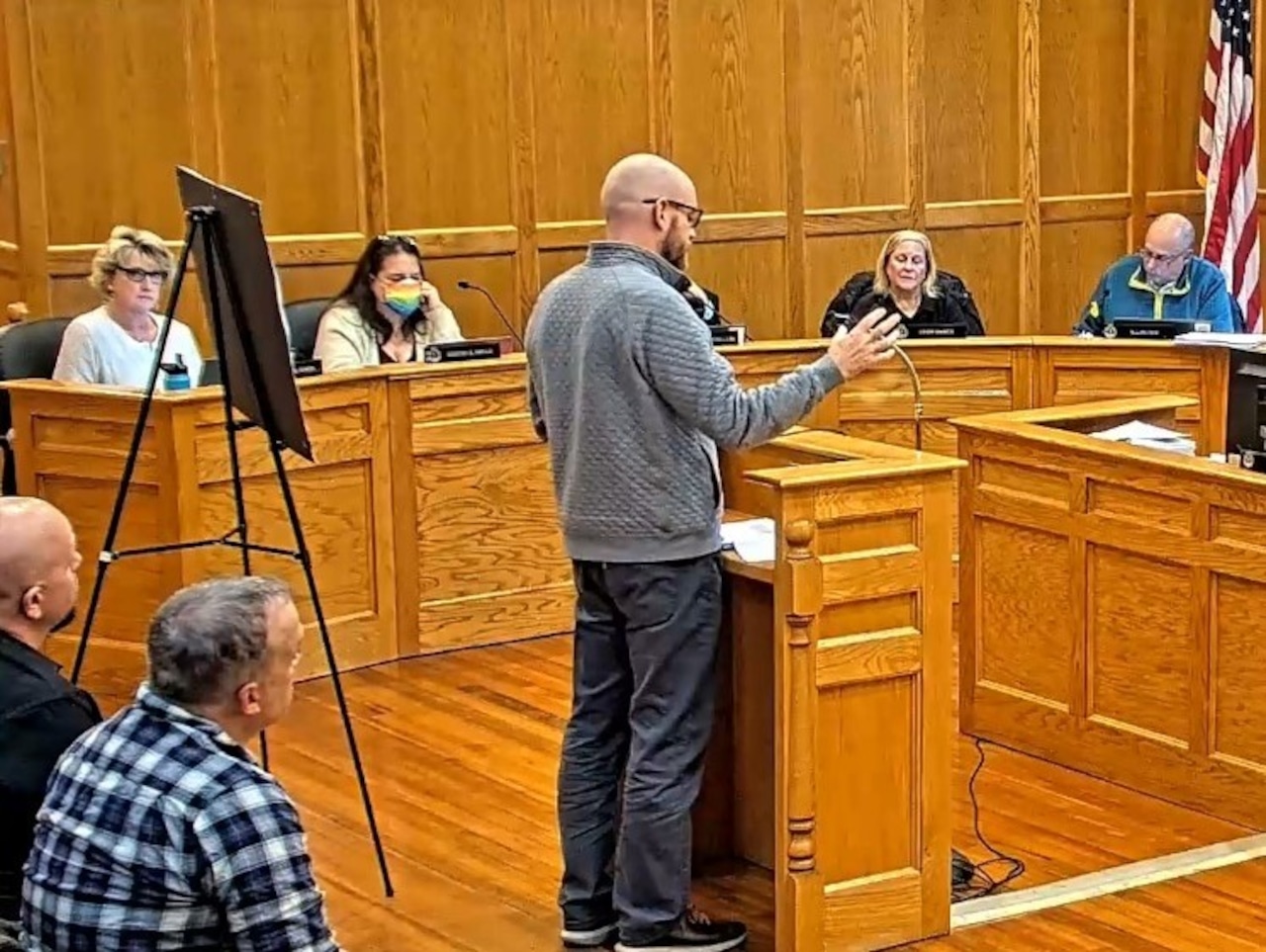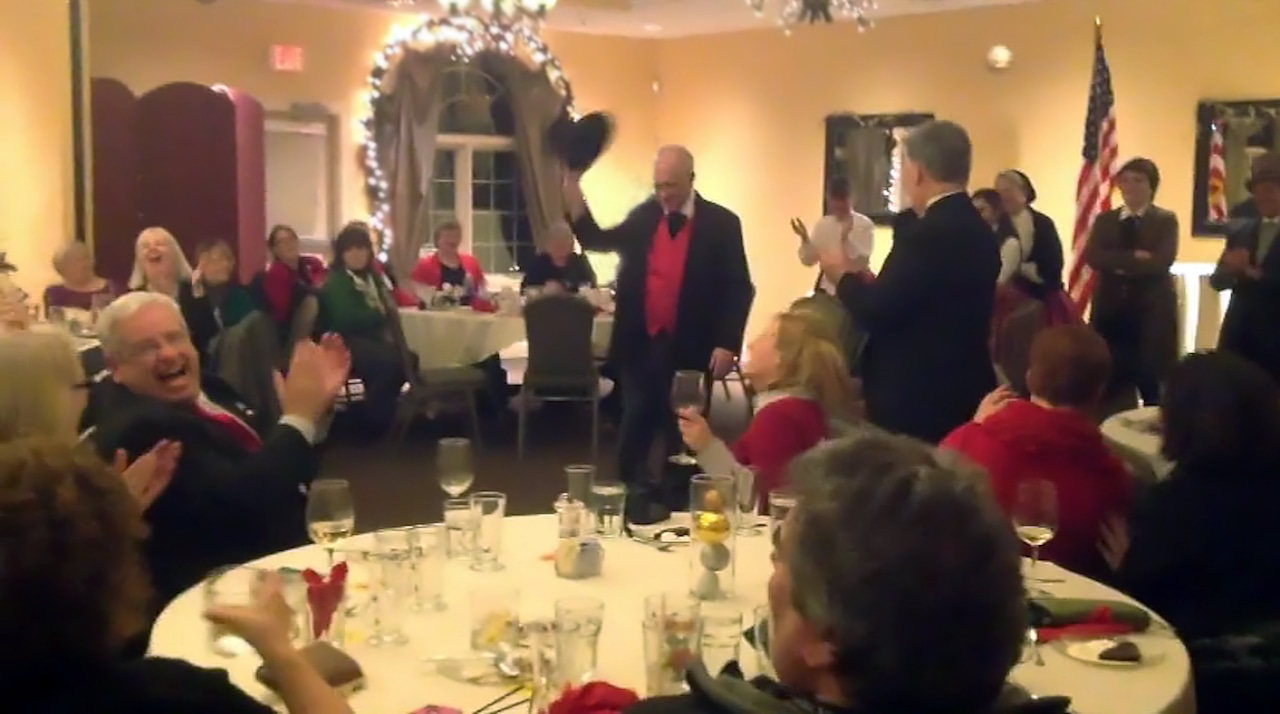
One of the most respected female country stars of her era, Kathy Mattea will perform at the successfully reopened and rejuvenated Iron Horse Music Hall in Northampton on Monday, June 10.
Showtime is 7 p.m.
Tickets range in price from $45 to $60 and are available at ironhorse.org.
Hailing from South Charleston, West Virginia, Mattea has enjoyed great success in country, bluegrass and folk music, including two Grammy Awards, four CMA Awards, four No. 1 country singles and five gold albums, as well as a platinum Greatest Hits collection. In 2011, she was inducted into the prestigious West Virginia Music Hall of Fame. Her most recent album, “Pretty Bird,” was produced by her old friend, roots music wizard Tim O’Brien. The wide-ranging collection of songs chronicles a period of rededication to singing, digging back in with a vocal coach and emerging with a poignant and eclectic CD. In addition to creating and recording music and performing live on tour, Mattea is increasingly involved with public broadcasting, consulting and contributing on screen in Ken Burns’ 2019 documentary for PBS called “Country Music.” She recently replacied founder Larry Groce as the host of the long-running NPR show “Mountain Stage.”
Answering what she referred to as “thoughtful questions,” Mattea recently took time to share her insights on a 35-year career as one of Nashville’s finest song interpreters.
Q: How did you find your home in country music?
I was like a musical sponge growing up. I fell in love with music and I would play with anybody in any form. I sang at our folk mass at church. I did community theater singing Broadway and show tunes. I was in the chorale in high school. And I used to jam with a friend’s dad and his bluegrass band in the living room of our house when I was in high school. I didn’t really care and just want to swim around in the music with other people. While in college at the University of West Virginia, I met up with a bunch of young people who loved music as much as I did. They all had guitars and we would sit around on weekends and just play music for hours and hours. Crowds would form on the streets to the point where police would come on Friday night and block off the street. The police suggested that we call ourselves a band and play our music in local bars. And that is how my first band was formed. They played everything from pop to country and bluegrass to folk. I learned most of the songs across a circle in the true folk tradition, not from listening to records. That was my first introduction to bluegrass and country and that is where my center point began to form. I started writing songs with one of the guys in the band who decided to move to Nashville and wanted me to go along with him. I realized that if I didn’t take him up on that offer, then I would wonder for the rest of my life what would have happened. So, I had to go if I was going to have any peace in my life going forward.
Q: How would you describe yourself as an artist?
I think that I have an eclectic taste. My music is acoustic-based country with a focus on bluegrass, but really the heart of the matter is that I try to make it about great songs.
Q: Why is storytelling such an important part of the genre?
Traditionally, country music fans were a little older than much younger pop fans. They were listening to the words… to the stories. They had already lived their lives a little bit and were resonating with stories that echoed their experiences. I think that is why Taylor Swift has been so successful. She was writing country songs, but the lyrics were such that young people, especially young girls, could relate to – romance, heartbreak, Romeos, that guy who is going to be their first love, and all those experiences that young people are having. What I love about music with great lyrics is that when listening to the story and being drawn into what is being said, there is something in your own experience that wakes up that relates to it… something that you might not have looked directly at or might not have looked at in that particular way that gives us insight into ourselves. One of the great things about “Eighteen Wheels and a Dozen Roses” (Mattea’s number one single in 1988) is that at the end of the day it’s all about a great love story, and isn’t that what we all want. The song was a true story written by two brothers whose uncle was a long-haul trucker. He retried and wanted to take his wife to all the favorite places he had seen on his travels. The song and its lyrics wake up a part of us that yearns for that kind of love. And to me that is what great stories do, they connect us to one another.
Q: Your career took a turn from focusing less on writing and more on being an interpreter of songs. Why?
Great question. I think I am wired for collaboration and not solo creation. My husband is a songwriter who can go off by himself for days and just hang out with the music. For me, music saved my life. It saved my life when I found a guitar and it gave me a way to connect with people that I had never been able to do before. So, for me the driving force is that connection. I get bored or distracted when sitting alone trying to come up with something to write. I think that I could have been a great co-writer. But I chose to put my energy into singing rather than writing, because I felt that I already had a natural talent for singing which I wanted to continue to nurture. Singing is the most fun I can think of. I can write, but it is tedious for me.
Q: How did it feel and what did it mean for you to be inducted in 2011 into the West Virginia Music Hall of Fame?
It was an unexpected, deeply moving moment. I wasn’t inducted into the first class, but I did have the pleasure of introducing one of the inductees during that show. It made me realize if the Hall of Fame had been around earlier, and I had seen that show and been exposed to so many other West Virginians who had gone on to do well in music, that I might have had a different life path and gotten started in music much earlier. I never really thought of music as a possibility. Both of my grandpas were miners and were poor. Music was something that was done for fun, not something to make a career out of. The fact that music happened for me was kind of a fluke. There were these little tiny moments when I kept turning to music event though my parents would say, “Honey, we love you and you are going to get guitar and piano lessons, but that is your fun thing. You are going to be an engineer.” I did go to college and majored in physics, chemistry, and engineering, but I was always playing music in my spare time. So, I think that I might have gotten into music much earlier, even though I was 19 when I moved to Nashville.
Q: Garth Brooks was a turning point in bringing country tours into big stadiums. Do you think the music, the message, gets lost there as opposed to more intimate settings?
Interesting question. My first thought is that if you have ever seen a video of Garth Brooks or Taylor Swift in concert at a big stadium, there is nothing lost. That is what is amazing. When music has good lyrics that reflect the lives of those in the audience, it can connect on any scale with a skilled perform. Personally, I love places like the Iron Horse where it feels like being in a giant living room. I can hear the audience, they can hear me, and I know they can hear all the words to my songs. Interestingly, I was talking on the phone recently with my first manager and he reminisced about asking me early on about what I wanted to do. My answer was that I didn’t want to play big arenas, and that I would rather find a theater where I could play several nights and be close to and reach out to my audiences. And I had forgotten until that phone call that this is the best way I respond to music.
Q: Who is your personal musical hero?
Emmylou Harris. For many women in my generation, we all look up to her. I remember early on asking myself if I wanted to pattern my career after Emmylou or Reba (McIntire). They are two really focused people with different approaches, but both have great careers. Emmylou is musically restless and she has always been based in songs and songwriters and great bands and players. She hasn’t taken the straight path and for her it has never been about being as big an artist as she could be. There were days when I would run into her and she would be telling me about this new song or songwriter she had discovered……she was always on fire about the next creative collaboration. And I thought that is what I want…..to follow that fire.
Q: Voices change over time, and there was a period in the mid 2010s when you felt that you were losing control over your voice, and you began to question if your amazing career was about to come to an end. But, you’re still here, thankfully.
I always said if I couldn’t sing anymore that I was going to walk away with my dignity. Then I bumped up against this moment when my voice, which I knew so well, didn’t perform in the same way that I was used to. And I thought that maybe it was time to quit. Then I began listening inward to find out what was the right thing to do. I thought to myself that I wasn’t just going to decide and walk away, and instead turned inward to see what was there. What I found was that I could still sing. I learned for some people, and I am an alto, that all the frequencies are wider and the vibrations of the vocal cords are slower at the lower tones. I heard someone say that your vocal cords move slightly, microscopically, further apart as you get older. If you are an alto, you are going to feel that more. So, I dug in and thought that if I get to the point where it doesn’t work and I’ve explored all the nooks and crannies that I would just walk away. Here is how I describe it. I used to think that I had this reliable Volvo, a car that was a classic and dependable and got the job done…….not fancy but something you could count on. I began to think, well, maybe what I have is a vintage Ferrari and I just don’t know how to drive it yet. A vintage anything is going to take a little bit of finesse. So, I had to think about it differently. What I learned was that I had to change the key of some of my songs, but not others. I had no idea why. There was no need to change the key for “18 Wheels and a Dozen Roses,” but I needed a key change for “Where’ve You Been.” What I found was that I had to let go of my ego and be able to say to myself, “Where is the place where ‘Where’ve You Been’ feels like it always felt.” I changed the key to the song and nobody noticed. In the end, I learned it is not about walking away saying what a great singer you are, but about getting out of the way so that you can hear the songs. I had to slough off a bunch of ego that I didn’t know I had about being a great singer and not trying to prove that so much to others, but instead celebrating being able to sing these songs and being with others who know them. And that it what it is all about for me today – all of the baggage I didn’t even know I was carrying with me has fallen away.
Q: After working with a vocal coach/teacher to help you find your voice again, the result several years later was your next studio album, “Pretty Bird,” released in 2018. How did it feel to be back?
When it came time for me to make a record again, I had been really digging in with Bill, my guitar player and longtime musical collaborator. We were sitting in the living room singing into the nooks and crannies of all different kinds of songs. And when I knew the time was right, I called my friend Tim O’Brien to produce the album. I’ve always loved his work and we are good friends. He is the most non-judgmental musician I know. He is a virtuoso and can meet anyone where they are……he celebrates everyone he has ever jammed with, sung with, played with. I knew he would be the safest person to take this risk with and find out if my voice would still perform in the studio, and it was a great experience all around. Next, I have a couple of new songs that I’ve put in my show that I love and the audience response has been huge. I am 304 songs into a new record. For me a record shows itself to me, I don’t just think it up and go do it. So, these songs are starting to jell into something and I have a plan. I’m really excited about two new songs that I am performing live. You can always tell when a song is good and the audience might have never heard it before, and someone comes up to you and says, “Oh my God, that song.” And it is happening every night now. I’m excited to be leaning into new music and I don’t feel scared of my voice anymore and love her just the way she is – beautiful and expressive even though there are some things I have lost. I’ve been telling my audience this story about the song “Ode to Billie Joe” that I’m singing. The low note to the song is something I have never had before. It is big, round and full, and I’m not straining and singing this song like I never would have in my earlier years. So, I’ve lost some things, but I’ve gained some too.






